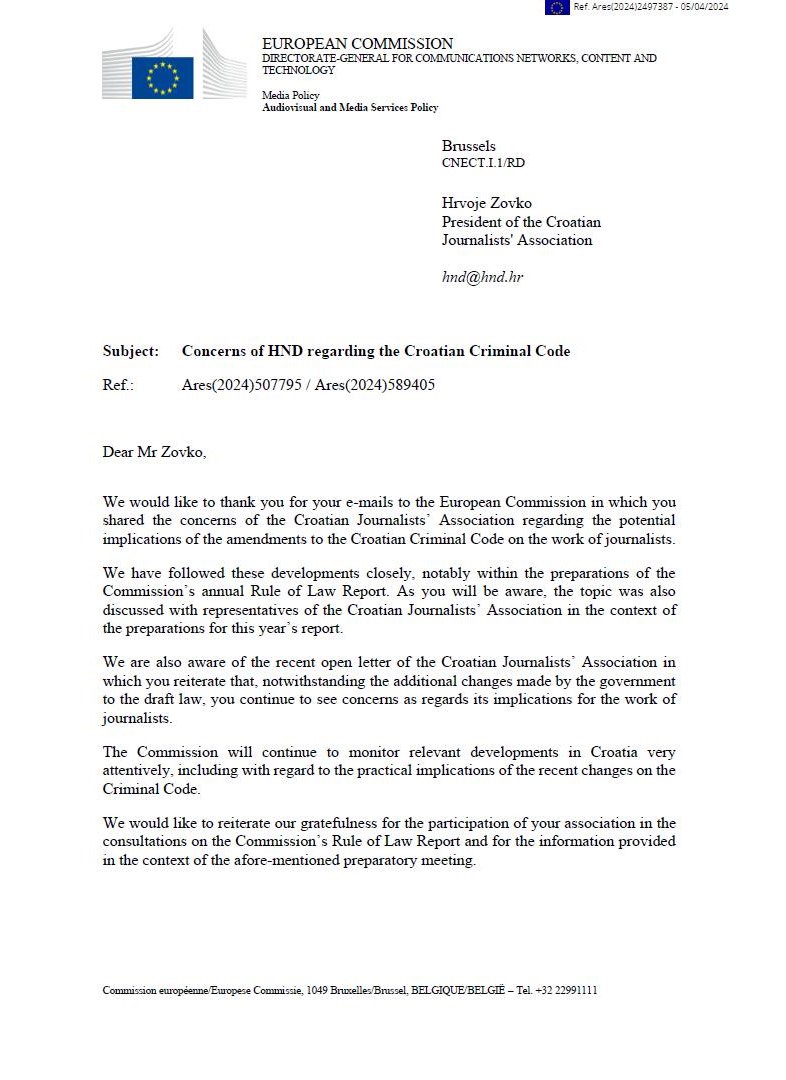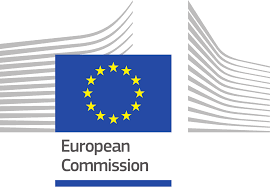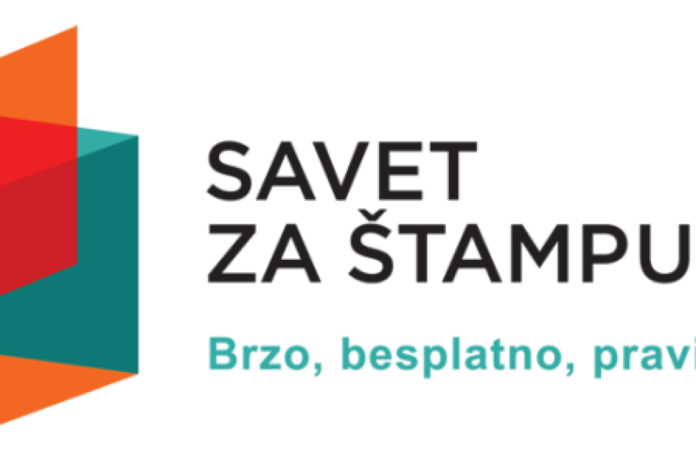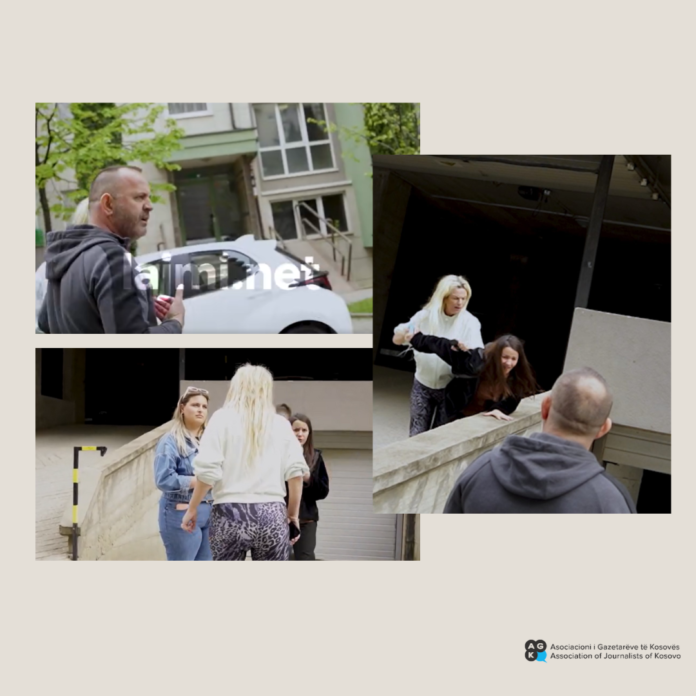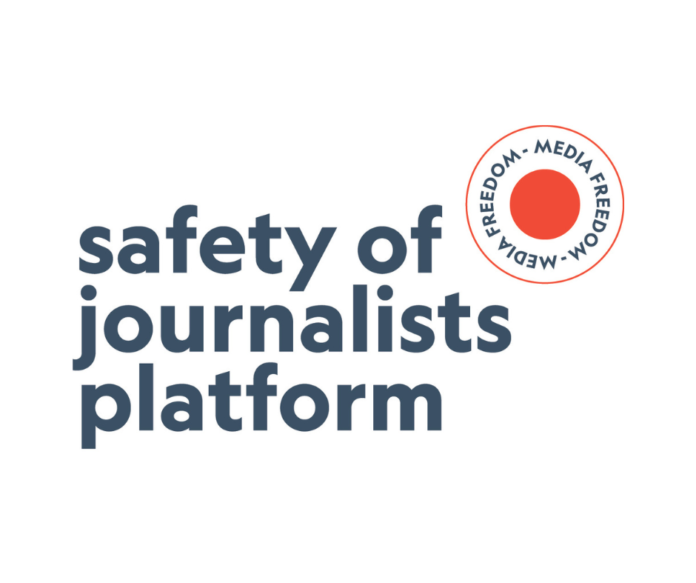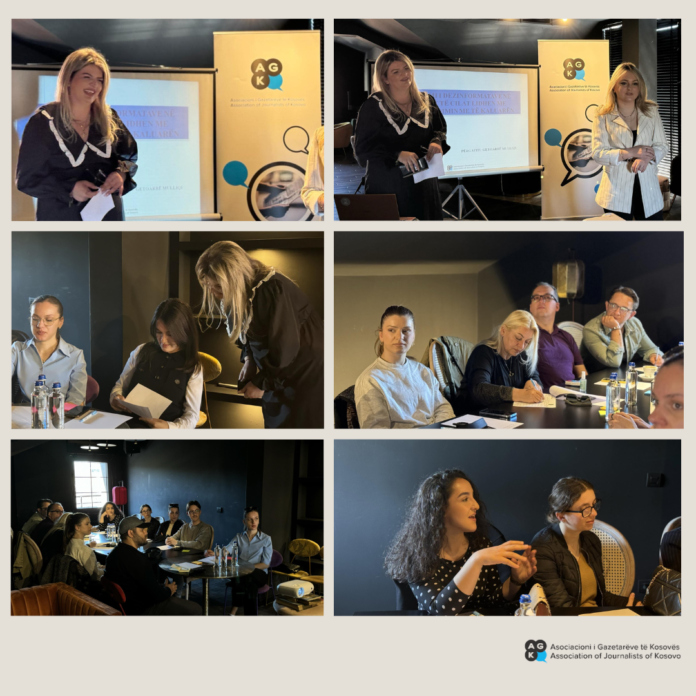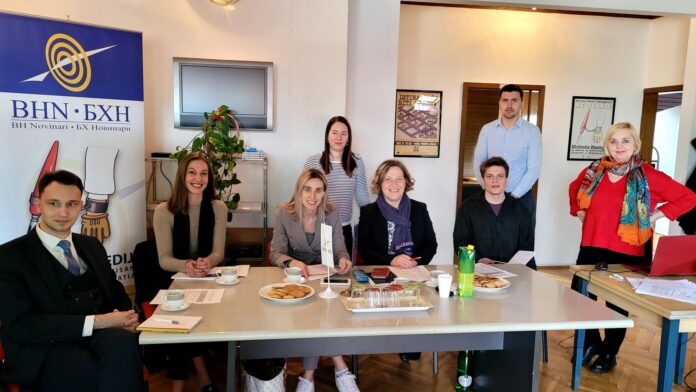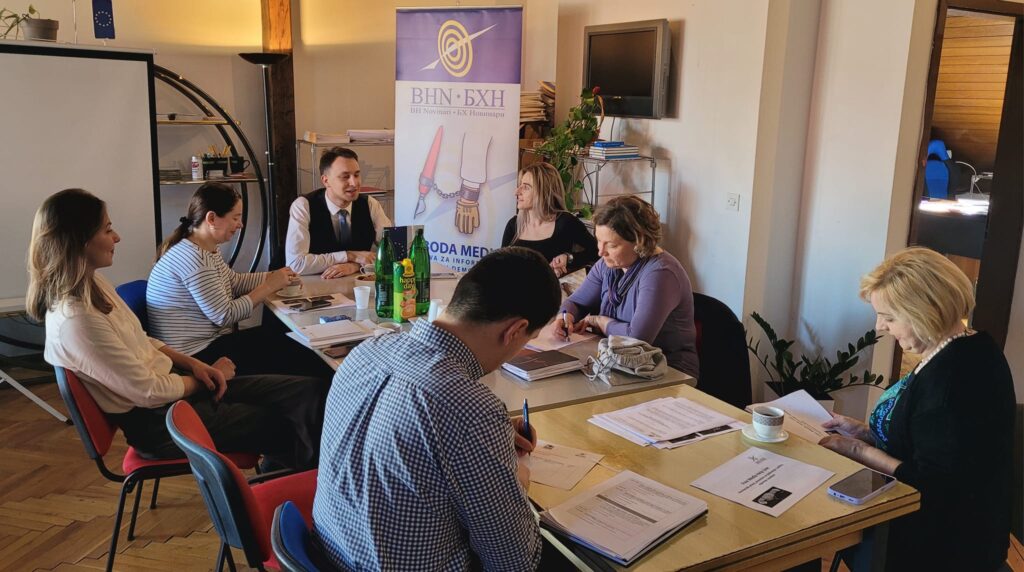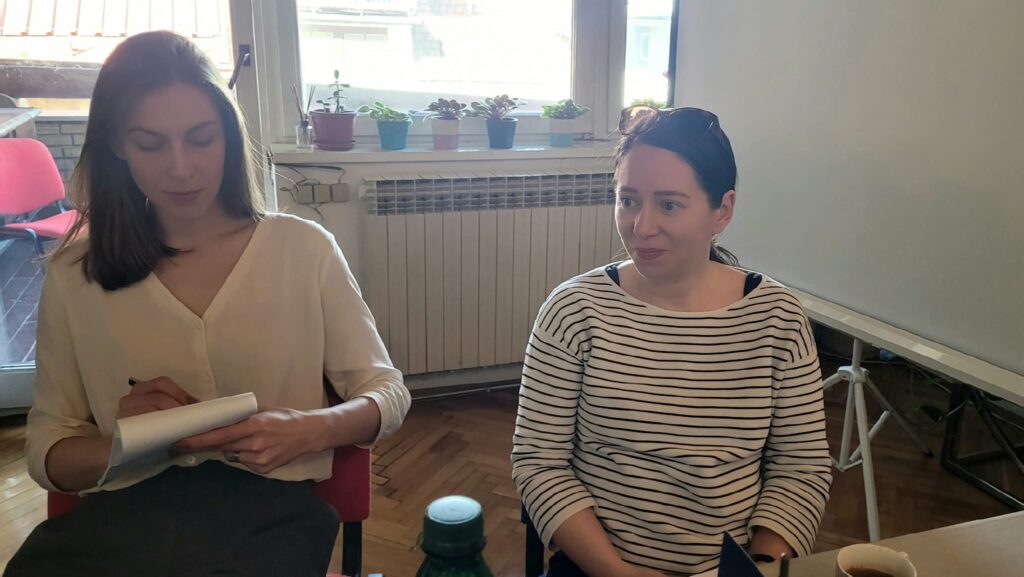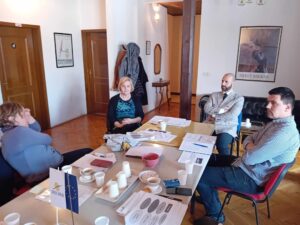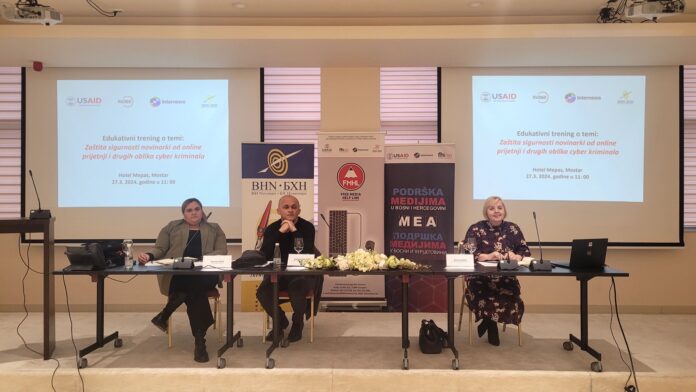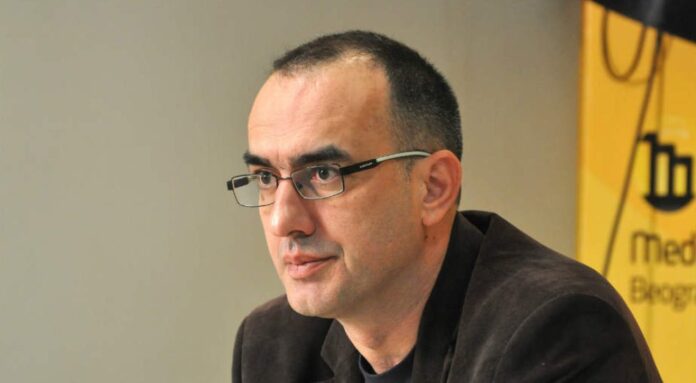Mostar, 27.3.2024. Media professionals in Bosnia and Herzegovina would feel safer if there was a Registry of cyber bullies, but also if the legal regulations were changed and adapted to the current problems that journalists face in the online space. Also, it is very important that the media write more about cyber violence. These are some of the conclusions of the educational training held on Wednesday in Mostar organized by BH journalists (BHJA) and FMHL (Free Media Help Line) with the participation of journalists and editors from Mostar, Čapljina and Nevesinje.
The training was organized with the aim of training journalists and media in the local community about the system of legal and institutional support and how to use effective protection through the use of legal representation in cases of threats, attacks, gender-based violence and misogyny in the online sphere, as well as other forms of cybercrime such as hacker attacks, violation of copyright and other rights, theft of identity and media content, etc.
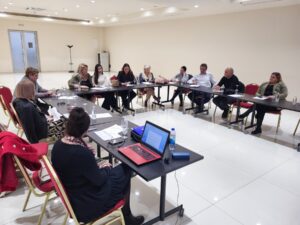 Denija Hidić, a member of the Cure Foundation Team, noted that attacks on female journalists are becoming more frequent in the online/offline sphere of activity, and that these attacks on female professionals, media workers also have a note of gender-based violence and discrimination.”Such forms of hate speech, gender-based violence and misogyny should be condemned in the public space, and we all have a duty to protect female journalists and provide them with freedom in reporting. It is necessary to process the attackers according to the priority process and to protect female journalists. The Law on Gender Equality provides key tools for female journalists to refer to the provisions of the law that protect women’s rights and discrimination against women based on gender,” said Hidić.
Denija Hidić, a member of the Cure Foundation Team, noted that attacks on female journalists are becoming more frequent in the online/offline sphere of activity, and that these attacks on female professionals, media workers also have a note of gender-based violence and discrimination.”Such forms of hate speech, gender-based violence and misogyny should be condemned in the public space, and we all have a duty to protect female journalists and provide them with freedom in reporting. It is necessary to process the attackers according to the priority process and to protect female journalists. The Law on Gender Equality provides key tools for female journalists to refer to the provisions of the law that protect women’s rights and discrimination against women based on gender,” said Hidić.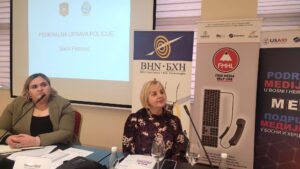
Internet abuse, doxxing, DDoS attacks and phishing and malware attacks are cases of security threats and risks that the Federal Police Administration (FUP) in Sarajevo has recorded in its work, said Saša Petrović, inspector of FUP Sarajevo at a training session in Mostar. He emphasized that the reports of journalists do not differ from the reports of ordinary citizens and that the law does not currently recognize journalists differently. He also pointed out that without the initiative of the Prosecutor’s Office, the police cannot react.
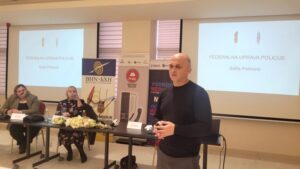 “The prosecution and the prosecutor is a key institution that manages the investigation, supervises the investigation and finally writes the indictments and sends the indictments to the court. The police is only an executive body. We have our basic powers that we must respect. I think that all issues of jeopardizing the safety of journalists should be asked of the prosecutors. In Serbia and Croatia, the criminal code regulated ‘harassment on the Internet’ as a criminal offense, this is not yet the case in our country and we should advocate for it,” Petrović said.
“The prosecution and the prosecutor is a key institution that manages the investigation, supervises the investigation and finally writes the indictments and sends the indictments to the court. The police is only an executive body. We have our basic powers that we must respect. I think that all issues of jeopardizing the safety of journalists should be asked of the prosecutors. In Serbia and Croatia, the criminal code regulated ‘harassment on the Internet’ as a criminal offense, this is not yet the case in our country and we should advocate for it,” Petrović said.
Attacks on the privacy, security and freedom of expression of media workers represent a serious risk not only for them as individuals, but also for democratic processes and freedom of information in Bosnia and Herzegovina (BiH).
According to the records of the Journalist Helpline (FMHL), out of 87 cases registered in the database during 2023, there are 35 cases where threats/attacks were directed at female journalists. In the past year, the Helpline for Journalists and the Association/Association of BH Journalists have registered in the database 24 cases related to cyber attacks and threats, where the victims of threats were most often female journalists (in 8 cases), while 5 media houses were exposed to multi-day attacks. hacker attacks.
Also, we point out that last year 72 individuals from the journalistic community and 15 media used free legal aid within the framework of FMHL, including representation before the courts, and the protection of journalistic rights and freedoms before institutions at different levels of government.
The training was organized with the support of the US Government as part of the USAID program to help independent media in BiH #MEA, which is implemented by Internews in cooperation with the organization Fhi360 and local partners.
